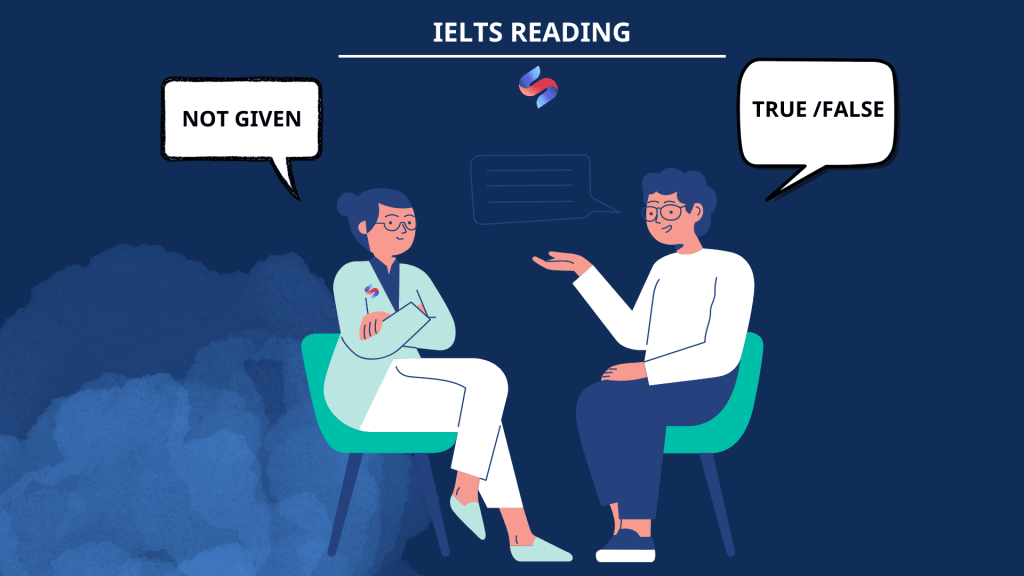
LAND OF THE RISING SUM
A Japan has a significantly better record in terms of average mathematical attainment than England and Wales. Large sample international comparisons of pupils’ attainments since the 1960s have established that not only did Japanese pupils at age 13 have better scores of average attainment, but there was also a larger proportion of ‘low’ attainers in England, where, incidentally, the variation in attainment scores was much greater. The percentage of Gross National Product spent on education is reasonably similar in the two countries, so how is this higher and more consistent attainment in maths achieved?
B Lower secondary schools in Japan cover three school years, from the seventh grade (age 13) to the ninth grade (age 15). Virtually all pupils at this stage attend state schools: only 3 per cent are in the private sector. Schools are usually modem in design, set well back from the road and spacious inside. Classrooms are large and pupils sit at single desks in rows. Lessons last for a standardised 50 minutes and are always followed by a 10-minute break, which gives the pupils a chance to let off steam. Teachers begin with a formal address and mutual bowing, and then concentrate on whole-class teaching.
Classes are large – usually about 40 – and are unstreamed. Pupils stay in the same class for all lessons throughout the school and develop considerable class identity and loyalty. Pupils attend the school in their own neighbourhood, which in theory removes ranking by school. In practice in Tokyo, because of the relative concentration of schools, there is some competition to get into the ‘better’ school in a particular area.
C Traditional ways of teaching form the basis of the lesson and the remarkably quiet classes take their own notes of the points made and the examples demonstrated. Everyone has their own copy of the textbook supplied by the central education authority, Monbusho, as part of the concept of free compulsory education up to the age of 15. These textbooks are, on the whole, small, presumably inexpensive to produce, but well set out and logically developed. (One teacher was particularly keen to introduce colour and pictures into maths textbooks: he felt this would make them more accessible to pupils brought up in a cartoon culture.) Besides approving textbooks, Monbusho also decides the highly centralised national curriculum and how it is to be delivered.
D Lessons all follow the same pattern. At the beginning, the pupils put solutions to the homework on the board, then the teachers comment, correct or elaborate as necessary. Pupils mark their own homework: this is an important principle in Japanese schooling as it enables pupils to see where and why they made a mistake, so that these can be avoided in future. No one minds mistakes or ignorance as long as you are prepared to learn from them.
After the homework has been discussed, the teacher explains the topic of the lesson, slowly and with a lot of repetition and elaboration. Examples are demonstrated on the board; questions from the textbook are worked through first with the class, and then the class is set questions from the textbook to do individually. Only rarely are supplementary worksheets distributed in a maths class. The impression is that the logical nature of the textbooks and their comprehensive coverage of different types of examples, combined with the relative homogeneity of the class, renders work sheets unnecessary. At this point, the teacher would circulate and make sure that all the pupils were coping well.
E It is remarkable that large, mixed-ability classes could be kept together for maths throughout all their compulsory schooling from 6 to 15. Teachers say that they give individual help at the end of a lesson or after school, setting extra work if necessary. In observed lessons, any strugglers would be assisted by the teacher or quietly seek help from their neighbour. Carefully fostered class identity makes pupils keen to help each other – anyway, it is in their interests since the class progresses together.
This scarcely seems adequate help to enable slow learners to keep up. However, the Japanese attitude towards education runs along the lines of ‘if you work hard enough, you can do almost anything’. Parents are kept closely informed of their children’s progress and will play a part in helping their children to keep up with class, sending them to ‘Juku’ (private evening tuition) if extra help is needed and encouraging them to work harder. It seems to work, at least for 95 per cent of the school population.
F So what are the major contributing factors in the success of maths teaching?
Clearly, attitudes are important. Education is valued greatly in Japanese culture; maths is recognised as an important compulsory subject throughout schooling; and the emphasis is on hard work coupled with a focus on accuracy.
Other relevant points relate to the supportive attitude of a class towards slower pupils, the lack of competition within a class, and the positive emphasis on learning for oneself and improving one’s own standard. And the view of repetitively boring lessons and learning the facts by heart, which is sometimes quoted in relation to Japanese classes, may be unfair and unjustified. No poor maths lessons were observed. They were mainly good and one or two were inspirational.
- Giải thích từ vựng
- Compulsory (a) /kəmˈpʌl.sər.i/ bắt buộc
Eg: Swimming was compulsory at my school.
The law made wearing seat belts in cars compulsory.
- Typical (a) /ˈtɪp.ɪ.kəl/ đặc thù, đặc trưng
Eg: I must look like the typical tourist with my shorts and my camera.
This kind of hot and spicy food is very typical of the food in the south of the country.
Một số từ đồng nghĩa:
- Normal temperatures are well above normal today.
- Usual i went to bed at my usual time.
- Ordinary the magazine has stories about ordinary people rather than celebrities.
- Standard it’s standard practice for surgeons to wear gloves.
- Natural it’s completely natural to feel anxious on your first day at a new school.
- Expenditure (n) /ɪkˈspen.dɪ.tʃər/ số lượng tiêu dùng; món tiền tiêu đi; phí tổn
Eg: It’s part of a drive to cut government expenditure.
The government’s annual expenditure on arms has been reduced.
We’re primarily concerned with keeping expenditure down.
- Background (n) /ˈbæk.ɡraʊnd/ kiến thức; quá trình đào tạo; quá trình học hành; kinh nghiệm
Eg: His family background predisposes him to support the democrats.
- Attainment (n) /əˈteɪn·mənt/ kiến thức, tri thức, học thức; tài (do trau giồi mà có)
Eg: Abiola pledged his life to the attainment of justice.
She is a young woman of impressive educational attainments.
- Proportion (n) /prəˈpɔː.ʃən/ tỷ lệ
Eg: Children make up a large proportion of the world’s population.
A higher proportion of men are willing to share household responsibilities than used to be the case.
Collocation
-
- Boost/increase the proportion of sth he pledged to boost the group’s proportion of home sales from 5% to 10%.
- As a proportion of sth last year, public spending as a proportion of gdp sank to its lowest since the mid-1960s.
- A high/large/significant proportion
- A low/small proportion
- Private (a) /ˈpraɪ.vət/ tư, tư nhân
Eg: Banks should be supporting small private businesses.
She’s decided to leave the health service and join a private practice.
The government restructured the coal industry before selling it to private owners.
- Spacious (a) /ˈspeɪ.ʃəs/ rộn lớn, rộng rãi
Eg: A spacious house is comfortable.
The hotel rooms are spacious and comfortable.
The villa is surrounded by spacious gardens.
- let off steam (idiom) giải tỏa căng thẳng hay giận giữ, xả hơi
Eg: She jogs after work to let off steam.
- Loyalty (n) /ˈlɔɪ.əl.ti/ lòng trung thành, lòng trung nghĩa, lòng trung kiên
Eg: The unions assured the new owners of the workers’ loyalty to the company.
He prides himself on his loyalty to his friends.
- Ranking (n) /ˈræn.kɪŋ/ hạng, loại
Eg: Last year wiseman rose from 266 to 35 in the tennis world rankings.
The city’s housing costs were enough to earn it a ranking of 66th nationally.
- Set out (phrasal verb) bắt đầu một hoạt động với một mục tiêu cụ thể
Eg: She set out with the aim of becoming the youngest ever winner of the championship.
They set out to discover a cure for cancer.
He set out to become chief executive.
- Accessible (a) /əkˈses.ə.bəl/ dễ tiếp cận, dễ hiểu
Eg: Lea Anderson is a choreographer who believes in making dance accessible.
- Approving (a) /əˈpruː.vɪŋ/ tán thành, đồng ý, bằng lòng, chấp thuận
Eg: She gave him an approving smile.
Her comments were less than approving.
- Elaborate (v) /iˈlæb.ər.ət/ nói thêm, cho thêm chi tiết
Eg: The congresswoman said she was resigning, but refused to elaborate on her reasons for doing so.
This point will be elaborated further in the next chapter.
Collocation
- Elaborate (on/upon something)
- repetition (n) /ˌrep.ɪˈtɪʃ.ən/ sự nhắc lại, sự lặp lại; điều nhắc lại, điều lặp lại
Eg: We hope to avoid a repetition of last year’s fiasco.
We don’t want a repetition of yesterday’s scenes.
The job involved the endless repetition of two or three simple tasks.
- Comprehensive (a) /ˌkɒm.prɪˈhen.sɪv/ bao hàm toàn diện, đầy đủ
Eg: We offer you a comprehensive training in all aspects of the business.
- Homogeneity (n) /ˌhɒm.ə.dʒəˈneɪ.ə.ti/ tính đồng nhất, tình đồng đều, tính thuần nhất
Eg: We’re seeing chefs abandoning homogeneity in favor of innovation.
In his book, he discusses cultural homogeneity.
- Render (v) /ˈren.dər/ khiến cho, làm cho
Eg: His rudeness rendered me speechless.
New technology has rendered my old computer obsolete.
- Assist (v) /əˈsɪst/ giúp đỡ, hỗ trợ
Eg: The army arrived to assist in the search.
You will be expected to assist the editor with the selection of illustrations for the book.
Một số từ đồng nghĩa:
- Help can i help you get that?
- Aid the project is designed to aid poorer countries.
- Collaborate we collaborated on the project.
- Cooperate several countries are cooperating in the relief effort.
- Benefit the children have benefited greatly from the new facilities.
- Foster (v) /ˈfɒs.tər/ bồi dưỡng (khả năng)
Eg: I’m trying to foster an interest in classical music in my children.
They were discussing the best way to foster democracy and prosperity in the former communist countries.
- Keep up (phrasal verb) theo kịp, bắt kịp
Eg: I read the papers to keep up with what’s happening in the outside world.
You run too fast – i can’t keep up.
- Value (v) /ˈvæl.juː/ trọng, chuộng, quý, coi trọng
Eg: Stop belittling yourself – your work is highly valued.
The bank manager waived the charge , as we were old and valued customers.
They value their freedom above and beyond all else.
- Accuracy (n) /ˈæk.jə.rə.si/ sự đúng đắn, sự chính xác; độ chính xác
Eg: The latest missiles can be fired with incredible accuracy.
Her paintings are almost photographic in their detail and accuracy.
- Supportive (a) /səˈpɔː.tɪv/ đem lại sự giúp đỡ, khuyến khích; thông cảm
Eg: Children with supportive parents often do better at school than those without.
He told me it was my own fault, which wasn’t very supportive.
- Learn sth by heart: học thuộc lòng
Eg: My father can still recite the poems he learned by heart at school.
- In relation to: trong mối quan hệ với, trong tương quan với
Eg: The drug is being studied for possible beneficial effects in relation to migraine headaches.
There are conflicting views in relation to this issue.
- Unjustified (a) /ʌnˈdʒʌs.tɪ.faɪd/ phi lý, sai trái, không được lý giải
Eg: The defendant had supreme and, as it turned out, unjustified confidence in his own judgment.
There were admittedly some unjustified delays in some olympic projects.
- Inspirational (a) /ˌɪn.spɪˈreɪ.ʃən.əl/ truyền cảm hứng; gây cảm hứng
Eg: He gave an inspirational reading of his own poems.
- State-run (a) (thuộc) nhà nước, quốc doanh
Eg: I work for a state-run company.
- In conjunction with: cùng chung, chung với (ai)
Eg: There is a team of writers working in conjunction with each other on the book.
- Tuition (n) /tʃuːˈɪʃ.ən/ sự dạy học, sự giảng dạy
Eg: All students receive tuition in logic and metaphysics.
University tuition fees have doubled in the last 5 years.
She received private tuition in french.
- Luyện tập
Bài 1: Chọn từ trong khung để hoàn thành các câu bên dưới
| relation | steam | attainment | tuition | typical |
| unjustified | learn | proportion | conjunction | expenditure |
- I like letting off ………………….. and I like saying things that shock people.
- You don’t have to …………………… these principles by heart, we just want you to have a basic understanding of them.
- This is a wholly ………………….. attack on individual freedoms.
- You know how small humans are in …………………….. to all the other things are being owner in the environment of them we.
- The police are working in ………………………… with tax officers on the investigation.
- I studied dance for two years under her expert ……………………..
- The report shows that poor families spend a larger …………………. of their income on food.
- The South East is the leading region in terms of the educational qualifications of its work force and the level of school ……………………..
- I propose that we wait until the budget has been announced before committing ourselves to any ……………………..
- ……………………… symptoms would include severe headaches, vomiting and dizziness.
Bài 2: Chọn đáp án đúng để điền vào chỗ trống
- Since they discovered the truth about his ……………….., his colleagues have regarded him with suspicion. A. background B. attainment
- They proposed making secondary education ………………… up to the age of 18. A. compulsory B. typical
- The upper classes usually send their children to expensive ………………. schools. A. accessible B. private
- Some people …………………. with the deliberate intention of running their own business, others stumble into it. A. keep up B. set out
- The general drift of the article was that society doesn’t …………………. older people. A. value B. foster
- Migrating birds make use of airstreams to ..………… them on their long journey south. A. assist B. elaborate
- The book has succeeded in making philosophy ……………… to a wider audience. A. spacious B. accessible
- All the countries have proclaimed their ……………….. to the alliance. A. loyalty B. attainment
- The hotel has 47 ……………………… bedrooms, all with en suite bathrooms. A. spacious B. private
- The UK’s actual ………………. won’t be known until a new Top 500 list is released. A. loyalty B. ranking
- He said he was resigning but did not ……………….. on his reasons. A. elaborate B. assist
- The school has carefully …………………… its progressive image. A. fostered B. assisted
- He has written a fully ……………………… guide to Rome. A. accessible B. comprehensive
- My father wasn’t ………………………… of the idea. A. compulsory B. approving
- His speeches show a marked preference for …………………, that tedious rhetorical device. A. repetition B. loyalty
- He said the relative ………………. of the population makes it is easier to identify and study genetic variants. A ranking B. homogeneity
- Billions have been spent, but not one gallon of the estimated 54m gallons of waste has been …………………… harmless. A. assisted B. rendered
- I can’t ……………………. with all the changes. A. keep up B. set out
- They were strongly …………………… of the government’s approach. A. supportive B. accessible
- I have found no evidence that she was particularly charismatic or ……………….. in her utterance, as we might expect to find. A. supportive B. inspirational
- Patricia has checked the reports and can vouch for the …………………….. of the information. A. homogeneity B. accuracy
- The government and many ………………… companies struggled to pay their bills- debts that surpassed $80 billion. A. state-run B. private
Bài 1:
1.steam 2. learn 3. unjustified 4. relation 5. conjunction
- tuition 7. proportion 8. attainment 9. expenditure 10. typical
Bài 2:
1.A 2. A 3. B 4. B 5. A
- A 7. B 8. A 9. A 10.B
- A 12. A 13. B 14. A 15.A
- B 17. B 18. A 19. A 20. B
21. B 22. A













